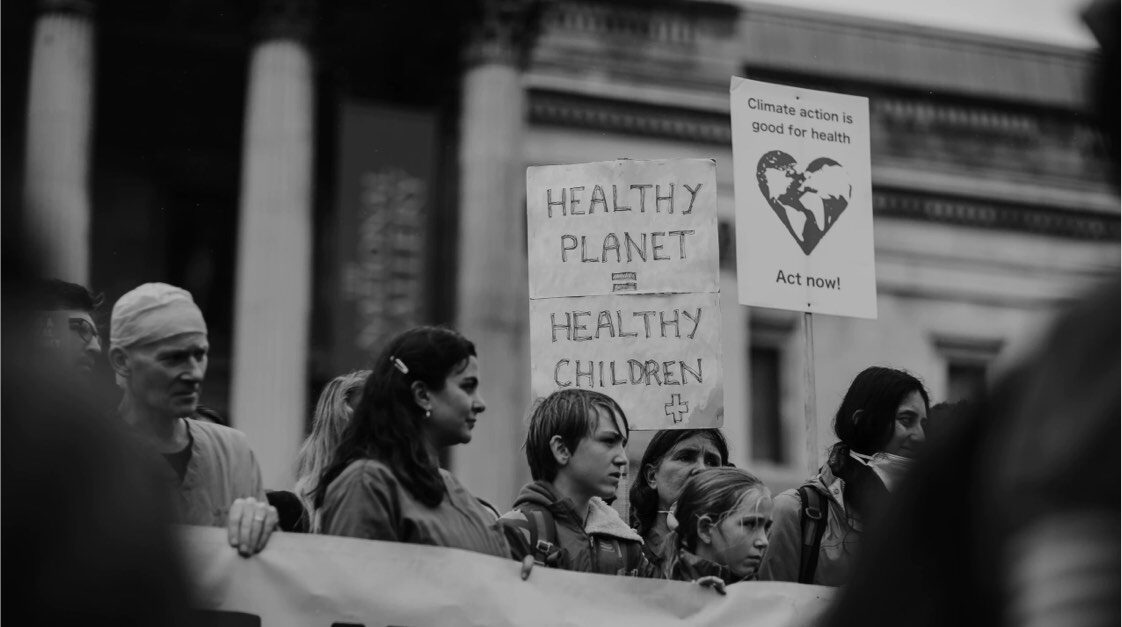Q & A of the Month by Fejen Marketing Agency
Are we going to see more politics in marketing?
Definetly yes!
Read Duration: 10 minutes

Photo Credit: Phil Hearing from Unsplash
In the last 30 years, brands have successfully adapted political issues such as embracing diversity, gender equality, L.G.B.T.Q.I.A.+ rights, minority rights, anti-discrimination, climate change and freedom of expression into their marketing strategies. This process, which made a great contribution to cultural transformation, accelerated especially in the 2000s and in the last decade with the development of the digital world.
VOA: Big US Brands Respond to Black Lives Matter Protest
Moreover, some brands encountered communication accidents in this area. Marketing campaigns that tried to portray the solution of the political problem as product-oriented and downplayed the problem (as in the case of Pepsi) became the focus of criticism.
what's trending: Black Lives Matter Protestors Jokingly Recreate Kendall Jenner Pepsi Commercial
These political attitudes and rising expectations of brands raise several questions:
- What's next?
- How far can this process, which obliges brands to take a political stand, go?
- How long can a brand continue this political discourse when it conflicts with both the states as authority and the system itself?
We can divide the situation into three according to the way brands are experienced and do business.
Brands in the first group are brands that are experienced individually. For example, a bank, a food, a clothing or a car brand. There are general methods adopted by such brands:
- To convey the message that they consider the political discourses in their internal functioning to the consumers through marketing activities.
Apple: Inclusion & Diversity — Open
- To use the message that making oneself and making sense of oneself can be a rebellion and a political attitude in marketing language.
Levi's 'Go Forth' Campaign Ad: The Laughing Heart by Charles Bukowski
The brands in the second group, that is, brands that include significant R&D investments in technology and produce products or services by considering certain ideals, are about to make room for new political approaches in their discourse.
For example, brands that will go to Mars will be able to do business politically depending on which state, which laws or which international organization? In the discussions to be held, the brands that do this work will have the right to speak politically and they will include these discourses in their marketing activities in order to gain the support of the society.
Another example is gene research companies that do genetic studies. Think of the controversy when any of these companies announced that they could prevent cancer with a prenatal genetic intervention. It's quite possible that these companies will take a political or even more human existential stance on how much to tamper with human DNA. At the end of the day, they are likely to include these issues in their marketing activities to gain public support.
The companies in the third group are digital brands that can be experienced collectively rather than individually. These digital brands, which take their power from their users and enable mass political movements (#occcupy movements) because they can be experienced massively, are already taking harsh political attitudes against the authority in their marketing processes.
For example, the 5-second 'Wow, this actually worked' ad that Reddettin aired on Super Bowl night.
Reddit: Wow, this actually worked ad.
Reddit has turned the #GameStop event, which targets the financial market and allows some actors in the financial market to see small investors as an actor and build the market, into a very important marketing campaign. Although this attitude against the system does not include a real rebellion in its essence, the perception in the eyes of the users and the language used in marketing literally include the message of taking a strong stand against the actors of the neo-liberal system or I am in the system.
Another is Twitter and Facebook, which have taken an even more drastic political stance and turned an action itself into a natural advertisement. In other words, Twitter and Facebook blocking the posts of heads of state even when they are actively presiding like Donald Trump and when the political tension is at its peak.
The political attitudes of brands, which not only individuals but also political organizations and leaders have to use as a means of making their voices heard, have reached a very harsh level. Moreover, consumers who cannot make their voices heard by political leaders take great pleasure in having this voice heard through the brands they experience.
In summary, we live in an age where brands that engage in an open political fight with an elected president and strengthen brand loyalty and gain value.
So what awaits us in the future? How much stronger will this political marketing language, which is added to the message of creating one's self as an individual and taking care of social issues?
The answer to this is irreversibly tied to the brands themselves.
From an optimistic point of view, if the attitudes of brands on social issues continue to contribute to the human values that are accepted today, and as a result, if brands continue to contribute to brand values, the political discourse in marketing will become stronger.
Moreover, by going beyond the existing political discourses, it will be possible to bring new political discourses that do not exist at the moment. For this reason, it is of great importance for individuals and companies working in the marketing sector to have knowledge and experience on politics and policy issues.
The 21st century is rapidly progressing towards becoming the century of brands that take care of the consumer's political existence independent of the product or service, instead of the brands that only care about the relationship and experience of the consumer with the product or service.
Created by Fejen Marketing Agency
Another article that might interest you: